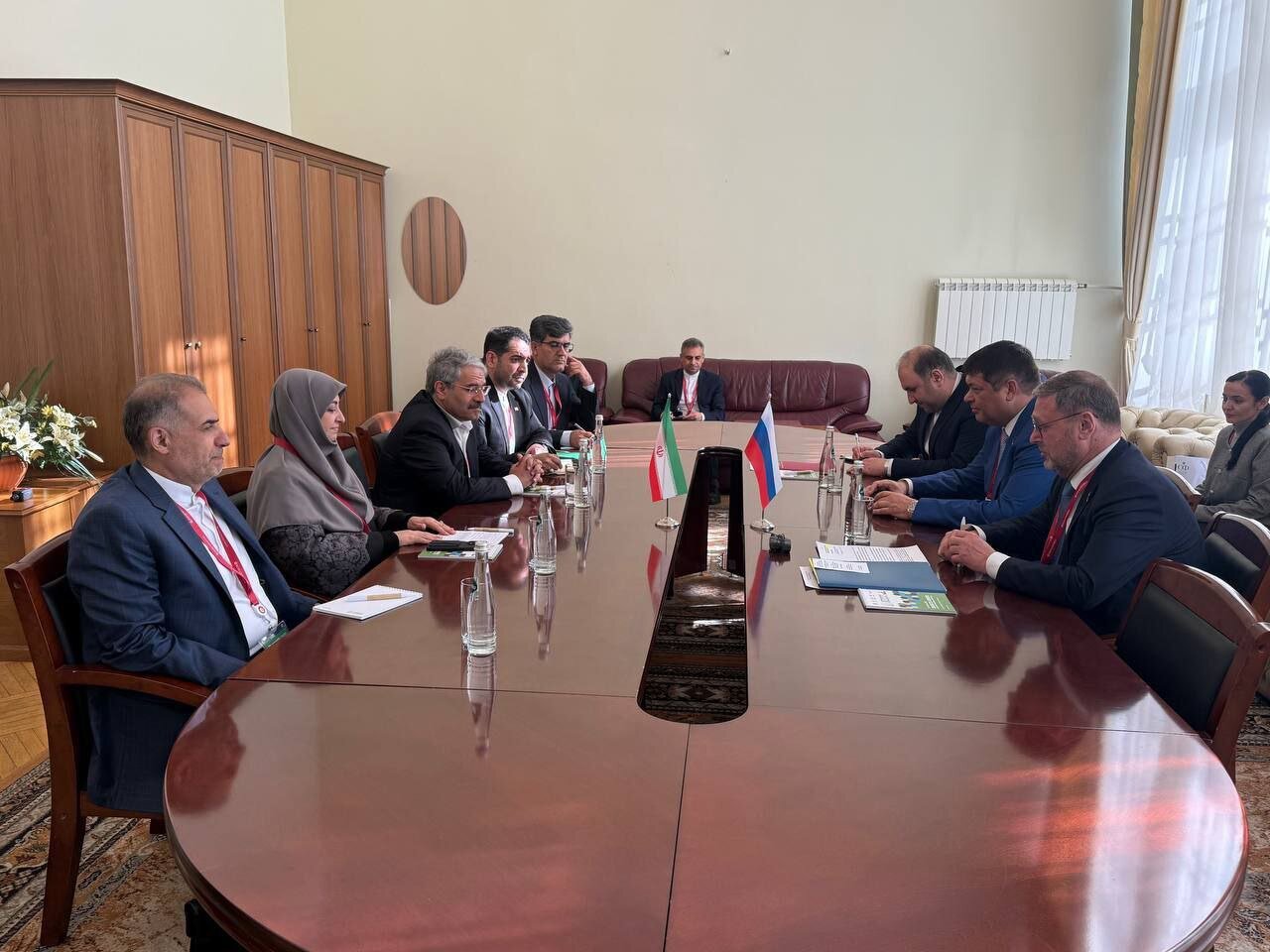Iran, Russia underline development of environmental ties

TEHRAN – The head of the Department of Environment, Shina Ansari, and the deputy chairmen of the Federation Council of Russia, Konstantin Kosachev, have explored the potential of enhancing joint efforts in environmental fields.
The officials met on the sidelines of the 11th Nevsky International Ecological Congress.
Highlighting that the two chambers of the Russian parliament (the State Duma and the Russian Federation) are willing to expand ties with Iran, Kosachev voiced Russia’s readiness to promote environmental cooperation with Iran, IRNA reported.
The official went on to emphasize the expansion of parliamentary collaboration between the two nations, saying that the Russia-Iran parliamentary friendship group within the Federation Council is one of the most active groups, which reflects the significance of the relationship between Russia and Iran.
Referring to the comprehensive strategic partnership treaty with Russia, Ansari, for her part, expressed optimism for the implementation of environmental agreements achieved under the treaty.
Referring to the Caspian Sea as a shared environmental challenge, the official called on Russia to further boost cooperation with the country in addressing the Sea’s problems.
Also, she highlighted the exchange of experiences between legislative institutions of Iran and Russia, and the two parliaments play a critical role in preserving the environment.
Attending the 11th Congress, Iranian officials used the opportunity to raise and discuss the Caspian Sea’s major environmental and ecological challenges, such as water level reduction, pollution, fishing, and fisheries, IRNA reported.
Participation in the meeting of Environment Ministers of the Caspian Sea, as well as the BRICS panel, was among other programs of the Iranian delegation.
Nevsky Int. Ecological Congress
The 11th Nevsky International Ecological Congress was held from May 22 to 23 in Saint Petersburg, Russia.
Ministers of environment from more than 40 countries, including Iran, Azerbaijan, Algeria, Burkina Faso, Belarus, Serbia, Indonesia, Jordan, Cambodia, and Kenya, attended the Congress.
The main goal of the Nevsky International Ecological Congress is to create effective and sustainable development mechanisms to preserve the environment in a changing climate.
The Congress 2025 once again hosted interstate, intersectoral dialogue on important environmental issues, with representatives from international organizations, government authorities, and business, scientific, and expert communities from across the globe already having confirmed their intention to attend the event.
The 11th Nevsky International Ecological Congress kicked off on May 22 with a Youth Programme, which became an important part of the business agenda.
Participants were treated to open dialogues and thematic sessions on youth engagement in the resolution of climate issues, the promotion of environmental awareness, the development of a culture of environmental volunteering, the inclusion of children in the ‘green’ agenda, and the role of youth climate initiatives in a more sustainable future.
The roundtables and sessions on May 22 focused on food security and climate risks, sustainable ecotourism, how artificial intelligence and digital solutions can be applied to benefit the environment, international cooperation within BRICS, conditions in the Caspian region, the development of the circular economy, the role of women in promoting eco-initiatives, green investment, the management of mineral resources, and low-carbon technologies.
On May 23, regional heads, mayors, and experts discussed the modern sustainable development practices of megacities, the process of making transport more environmentally friendly, the preservation of green areas, and new approaches to health preservation.
MT/MG
Leave a Comment